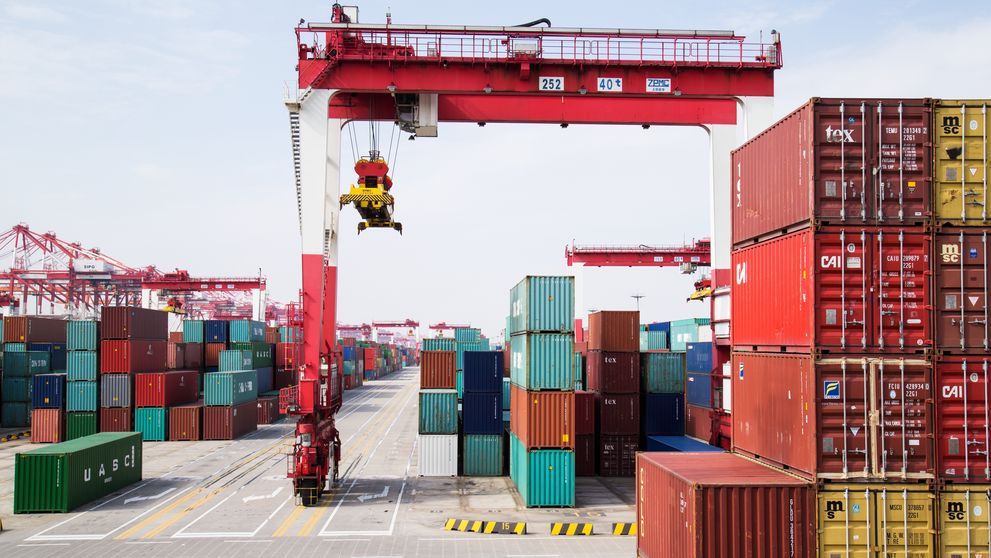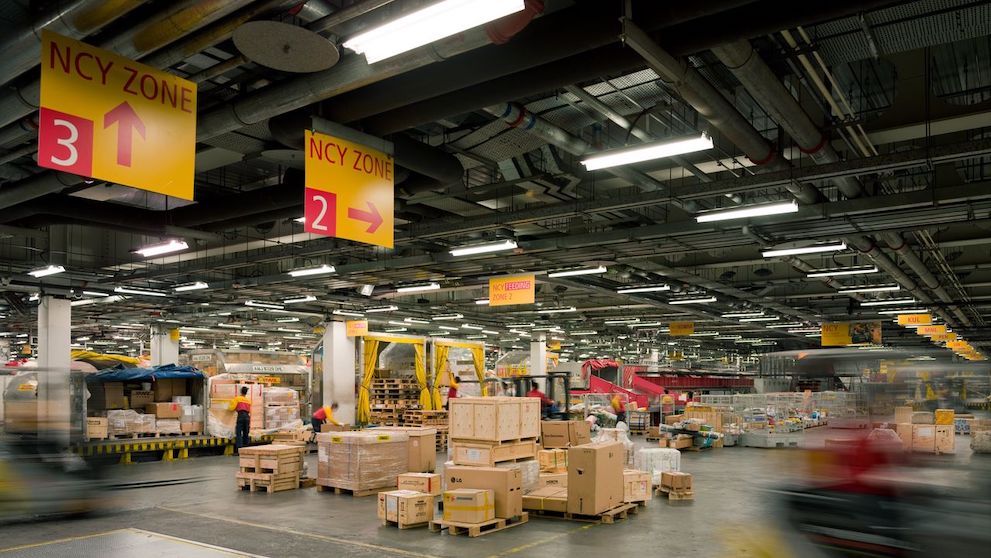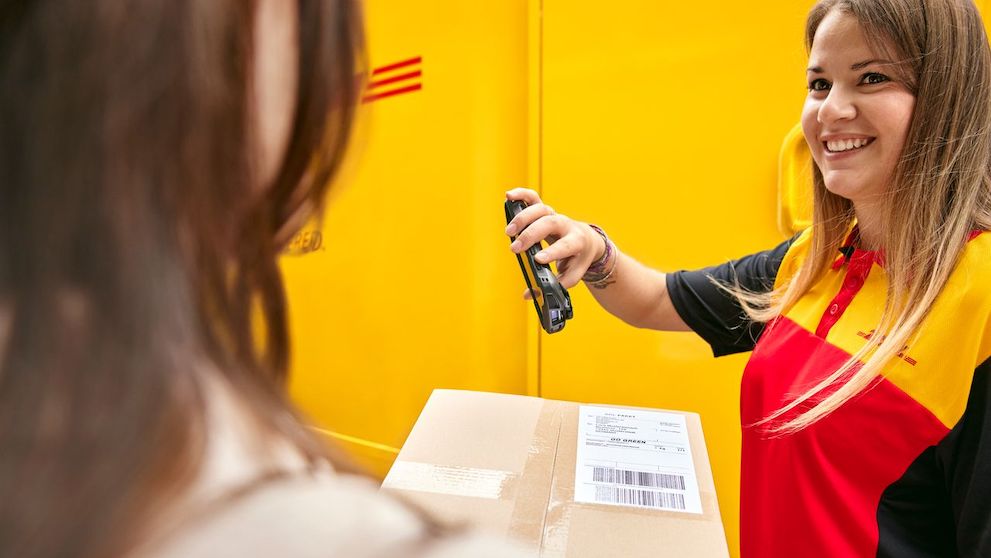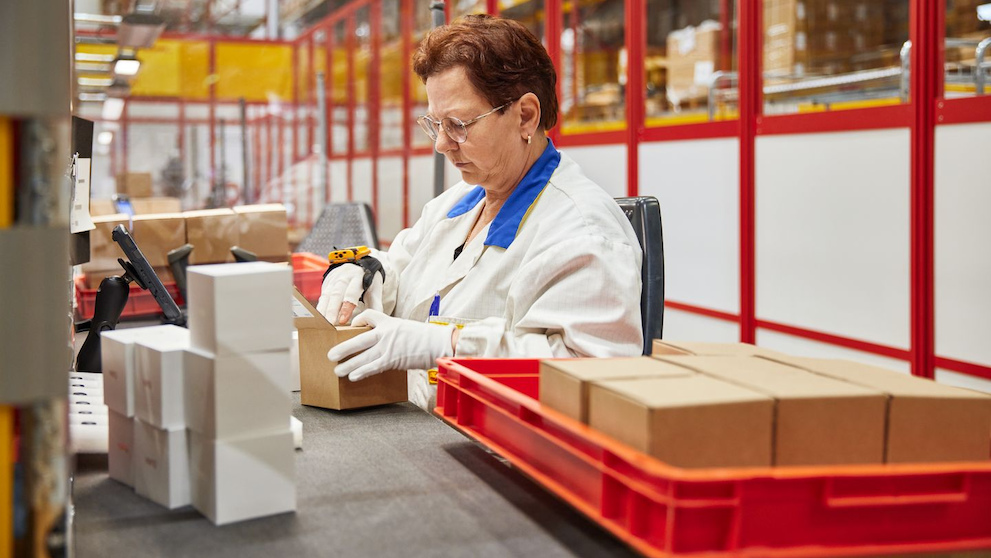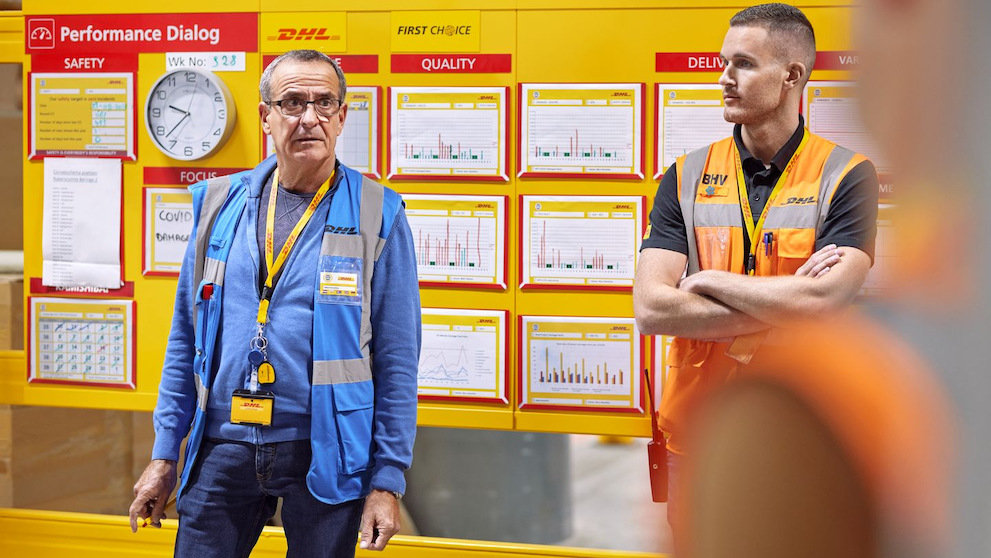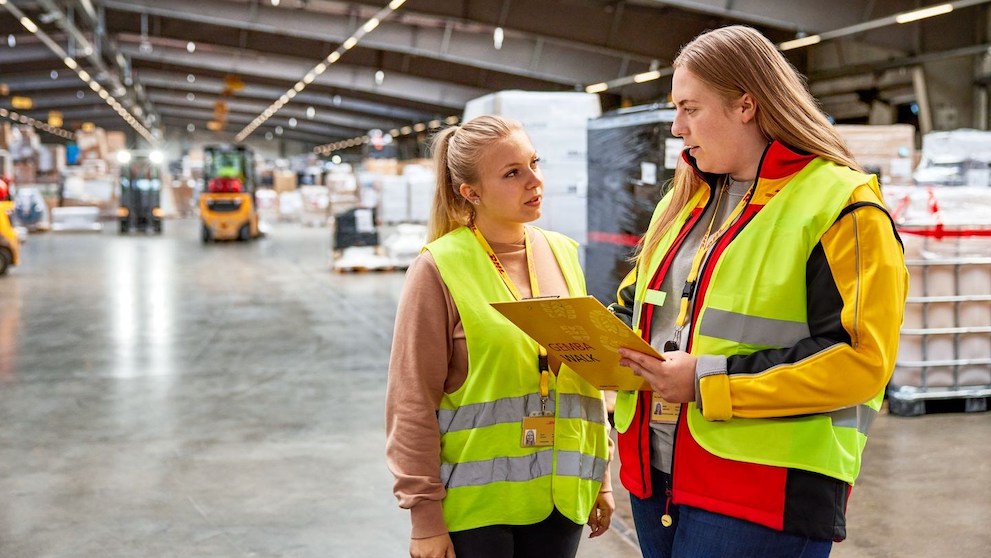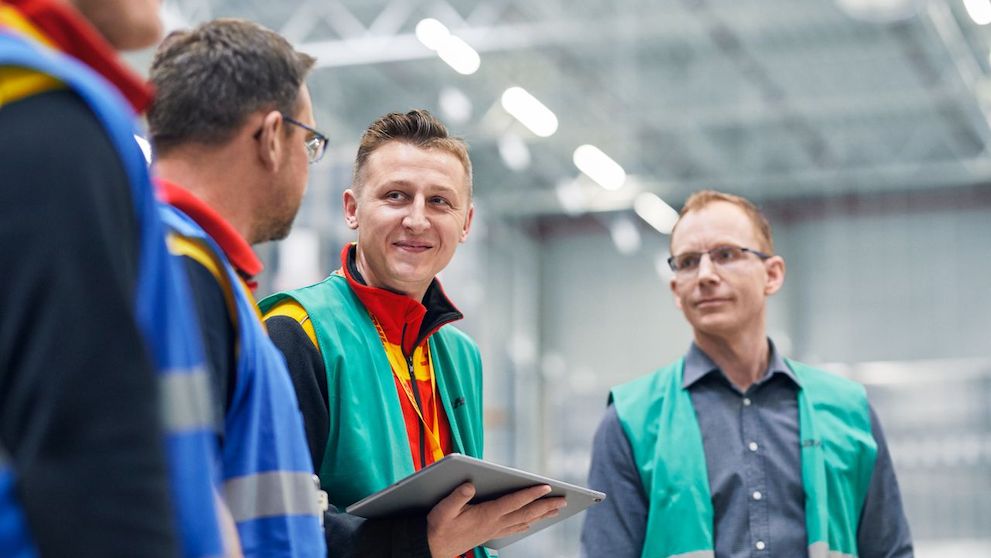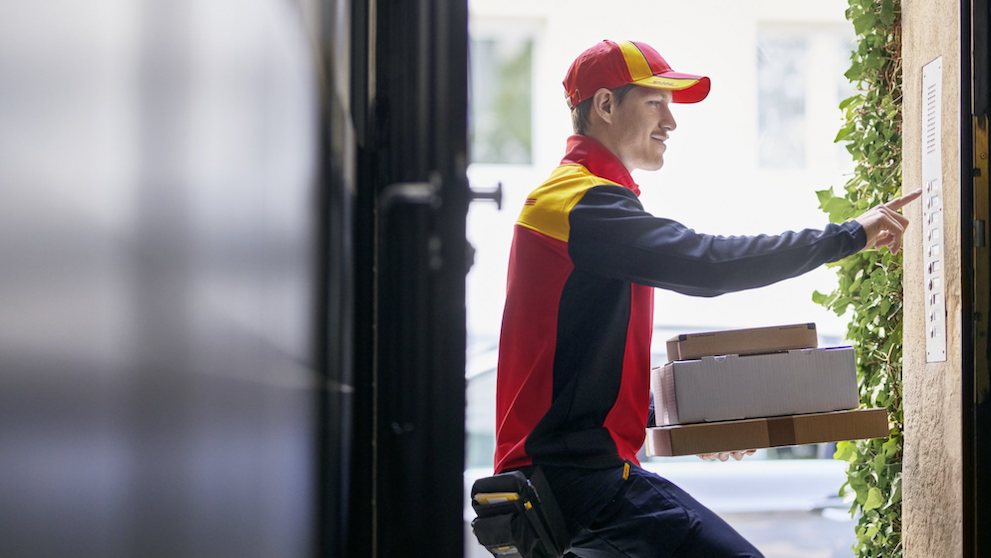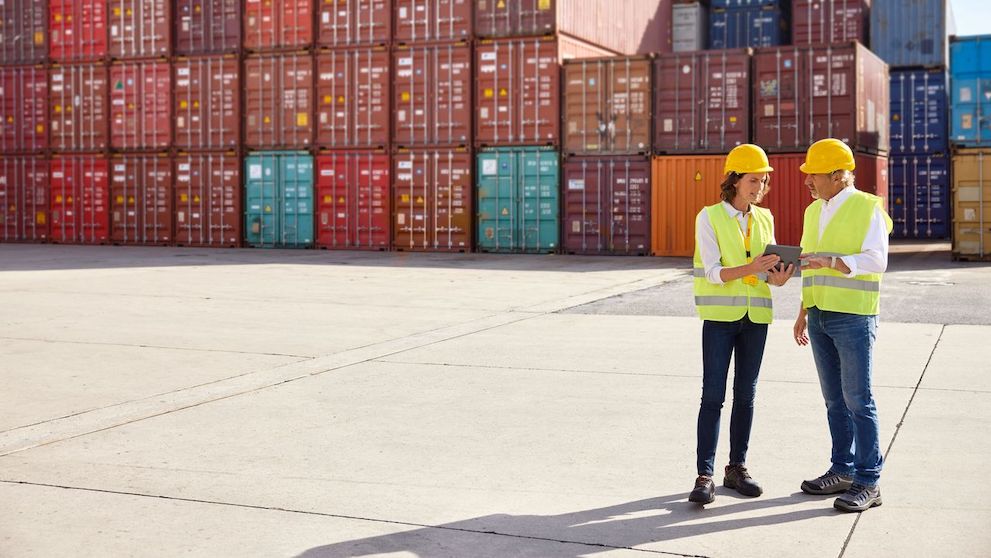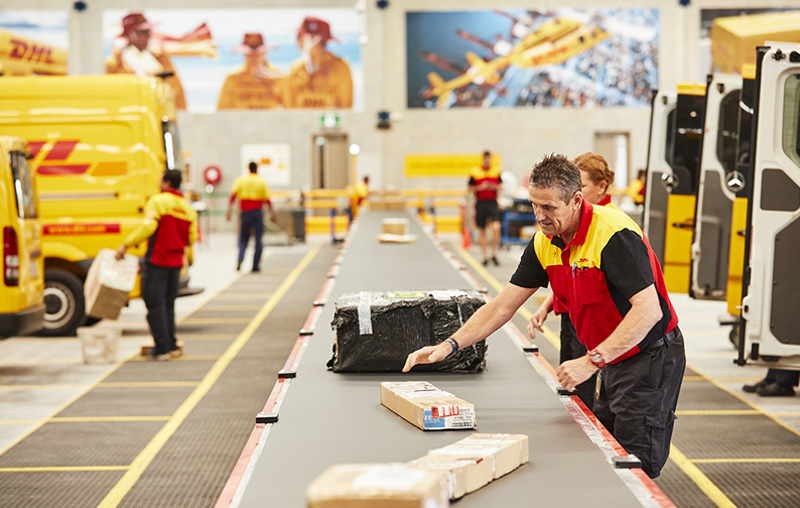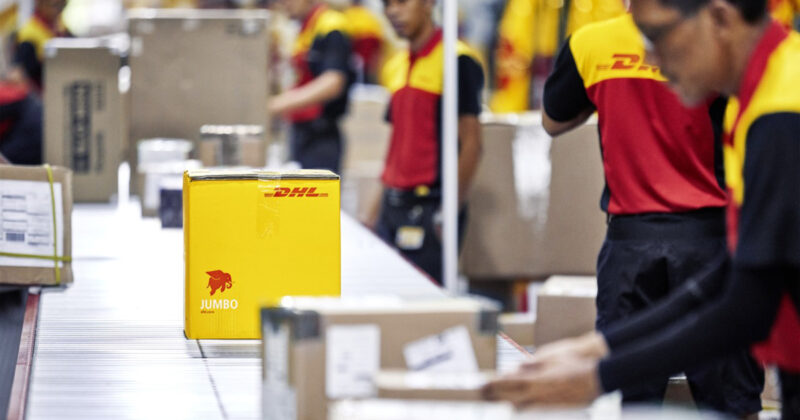The introduction of industry 4.0 solutions to supply chain management optimises the end-to-end chain. We illustrate how logistics 4.0, revolutionary digitalisation, is set to change the industry and provide solutions that reduce costs, while increasing productivity.
Logistics 4.0 is informed by industry 4.0 – the shift of the economy towards digitalisation. Supply chain management is complex and dynamic, and the use of digital technologies creates visibility across the value chain and improves performance. Digital transformation is valued to be worth US$1.5 trillion for logistics players globally.
In using solutions like data analytics, automated sorting, picking and packing, and drones to inspect inventory, companies can streamline their processes and predict disruptions to manage them. Digitalisation of the supply chain not only helps to reduce inefficiencies, but reduces the logistics industry’s impact on the environment.
What is smart supply chain management?
First, what is supply chain management? Successful supply chain management hinges on the timely performance of each function of the process – from the delivery of raw materials to manufacturing to warehousing to finally, the delivery to the customer. It also requires that any change or delay in one part of the process be quickly communicated so that deliveries can be made to customers as promised.
Smart supply chain management introduces industry 4.0 technology solutions to each stage of the logistics chain. It allows enterprises to collect and organise data to drive insights, incorporate intelligent solutions, and automate activity. This helps maximise cost-savings, increase productivity, and ensure customers always receive their orders on time.
How does industry 4.0 support supply chain management?
1. More precise data collection to predict future demand
Traditional data-gathering and planning processes use simplistic analytic tools and manual data-gathering methods. Relying solely on manual pen-and-paper systems to record and extrapolate data is tedious and time consuming. Not considering other functions also limits a company’s ability to accurately predict demand or pinpoint potential issues.
With advanced analytics – the use of artificial-intelligence (AI) and machine learning algorithms – a range of both internal and external factors can be considered to determine future orders. Factoring information from suppliers, customers, carriers as well as broader global events that influence the flow of goods, like the COVID-19 pandemic or economic crises – allow for more precise predictive analysis.
2. Automating processes in the warehouse with robots and drones
Warehouse order fulfillment and order picking involves a significant amount of physical labour and repetitive tasks. By using technology, such as smart picking robots or cobots (robots that collaborate with human workers), drones and shuttles – processes are automated and managing a warehouse is made more efficient.
Fully automated, driverless shuttles – Automated Guided Vehicles (AGVs) – transport and stack goods in the warehouse. These machines travel throughout the warehouse independently performing such tasks previously performed by human workers. Drones are used to audit inventory, stock taking and to search for lost items in the warehouse.
3. Greater connectivity with Internet of Things (IoT)
Integrating Internet of Things (IoT) into warehouse management would mean collecting data in real-time from the various components of a warehouse. RFID sensors tagged to products allow them to be tracked from the moment they enter the warehouse, to when they are shelved or moved and finally dispatched. Smart shelves wirelessly transmit data when parcels are added or removed by tracking changes in weight. Information from all these different sources are fed into an inventory database and constantly updated, building transparency into the process.
What does industry 4.0 mean for businesses?
Industry 4.0 autonomous planning allows enterprises to have a firmer handle on the end-to-end value chain. Applying digital solutions to the data process saves time, reduces errors and increases visibility across the chain. By gathering relevant data from a variety of sources and collaborating across different teams, more useful insights can be gleaned. This then helps logistics companies plan more effectively, optimise the supply chain, address challenges like delays in production or delivery – allowing for greater operational efficiency.
Digital and automated solutions help to assist warehouse workers in effectively sorting out orders, ensuring the delivery of multiple products are handled well. Smart warehouse systems flag any discrepancies immediately, reducing human errors. Through the use of autonomous technology, the manual aspect of warehouse management is removed, cost is reduced and productivity is increased.
The use of heavy machinery in warehouses also gives rise to potential safety issues. Manual forklifts rely on human input, and if a worker is fatigued, this can compromise their safety. AGVs are programed with audio and visual sensors that alert workers when in operation, ensuring workers’ safety.
How DHL Express leverages logistics 4.0 to digitalise its supply chain
DHL Express recognises the benefits of supply chain optimisation and has harnessed digitalisation to transform its logistics operations. As part of its Strategy 2025 goal of providing excellent service by optimising supply chain operations, it has invested over €2 billion on digital transformation projects.
To remove the manual labour and repetitiveness associated with logistics, DHL Express has introduced a suite of digital tools and solutions. DHLBot, an automatic flyer sorter, improves efficiency and reduces human contact. Autonomous mobile robots, equipped with sensors and AI-powered avoidance systems, provide on-demand deliveries. Chatbots and On Demand Delivery (ODD) online portals feed customers with real-time shipping updates.
As you plan for your logistics strategy for the year, consider making technology integration a priority.
Engage DHL Express for all your logistics needs
DHL Express brings digitalisation to the fore of supply chain management. We incorporate logistics 4.0 solutions in our value chain to optimise our processes and provide only the best to our customers. Going with a third party logistics company that adopts cutting edge digital tools and technology to streamline its processes ensures you always deliver an exceptional customer experience. Sign up for a DHL Express account today.

